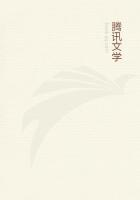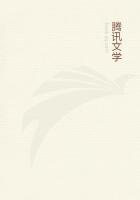Michael squared his shoulders and his mind.
"I am exceedingly sorry to disappoint you in the matter of your wishes," he said; "but in the matter of your authority I can't recognise it when the question of my whole life is at stake. Iknow that I am your son, and I want to be dutiful, but I have my own individuality as well. That only recognises the authority of my own conscience."That seemed to Lord Ashbridge both tragic and ludicrous.
Completely subservient himself to the conventions which he so much enjoyed, it was like the defiance of a child to say such things.
He only just checked himself from laughing again.
"I refuse to take that answer from you," he said.
"I have no other to give you," said Michael. "But I should like to say once more that I am sorry to disobey your wishes."The repetition took away his desire to laugh. In fact, he could not have laughed.
"I don't want to threaten you, Michael," he said. "But you may know that I have a very free hand in the disposal of my property.""Is that a threat?" asked Michael.
"It is a hint."
"Then, father, I can only say that I should be perfectly satisfied with anything you may do," said Michael. "I wish you could leave everything you have to Francis. I tell you in all sincerity that Iwish he had been my elder brother. You would have been far better pleased with him."Lord Ashbridge's anger rose. He was naturally so self-complacent as to be seldom disposed to anger, but its rarity was not due to kindliness of nature.
"I have before now noticed your jealousy of your cousin," he observed.
Michael's face went white.
"That is infamous and untrue, father," he said.
Lord Ashbridge turned on him.
"Apologise for that," he said.
Michael looked up at his high towering without a tremor.
"I wait for the withdrawal of your accusation that I am jealous of Francis," he replied.
There was a dead silence. Lord Ashbridge stood there in swollen and speechless indignation, and Michael faced him undismayed. . . .
And then suddenly to the boy there came an impulse of pure pity for his father's disappointment in having a son like himself. He saw with the candour which was so real a part of him how hopeless it must be, to a man of his father's mind, to have a millstone like himself unalterably bound round his neck, fit to choke and drown him.
"Indeed, I am not jealous of Francis, father," he said, "and Ispeak quite truthfully when I say how I sympathise with you in having a son like me. I don't want to vex you. I want to make the best of myself."Lord Ashbridge stood looking exactly like his statue in the market-place at Ashbridge.
"If that is the case, Michael," he said, "it is within your power.
You will write the letter I spoke about."Michael paused a moment as if waiting for more. It did not seem to him possible that his appeal should bear no further fruit than that. But it was soon clear that there was no more to come.
"I will wish you good night, father," he said.
Sunday was a day on which Lord Ashbridge was almost more himself than during the week, so shining and public an example did he become of the British nobleman. Instead of having breakfast, according to the middle-class custom, rather later than usual, that solid sausagy meal was half an hour earlier, so that all the servants, except those whose presence in the house was imperatively necessary for purposes of lunch, should go to church. Thus "Old George" and Lord Ashbridge's private boat were exceedingly busy for the half-hour preceding church time, the last boat-load holding the family, whose arrival was the signal for service to begin. Lady Ashbridge, however, always went on earlier, for she presided at the organ with the long, camel-like back turned towards the congregation, and started playing a slow, melancholy voluntary when the boy who blew the bellows said to her in an ecclesiastical whisper: "His lordship has arrived, my lady." Those of the household who could sing (singing being construed in the sense of ****** a loud and cheerful noise in the throat) clustered in the choir-pews near the organ, while the family sat in a large, square box, with a stove in the centre, amply supplied with prayer-books of the time when even Protestants might pray for Queen Caroline.
Behind them, separated from the rest of the church by an ornamental ironwork grille, was the Comber chapel, in which antiquarians took nearly as much pleasure as Lord Ashbridge himself. Here reclined a glorious company of sixteenth century knights, with their honourable ladies at their sides, unyielding marble bolsters at their heads, and grotesque dogs at their feet. Later, when their peerage was conferred, they lost a little of their yeoman simplicity, and became peruked and robed and breeched; one, indeed, in the age of George III., who was blessed with poetical aspirations, appeared in bare feet and a Roman toga with a scroll of manuscript in his hand; while later again, mere tablets on the walls commemorated their almost uncanny virtues.















